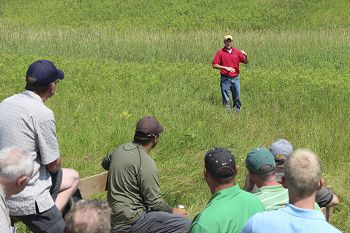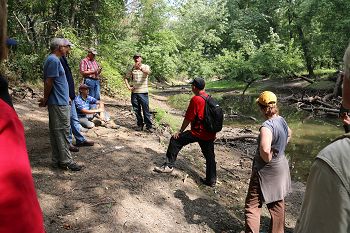Cross-CZO Studies
Scalability, Transferability, and Expanding the Critical Zone Science Network Internationally
The IML-CZO is participating in select activities proposed by other CZOs:
- The proposed CZ Network Cyberseminar Series (with R. Hooper of CUAHSI)
- CZ Network Research Workshops
- Joint Research Field Campaigns
- “Drill the Ridge”
- Cross-CZO Modeling activities
Collaboration across disciplines and across CZOs is one of the project's greatest benefits.
Cross-CZO Visiting Chinese Scholars Network:
Expanding the CZO network concept to China has long been an important target of the National Science Foundation of China, NSF of the United States, and SoilTrEC of the European Union. At the 2012 Wuhan CZO workshop held at the China University of Geosciences, many participants spoke very favorably of the concept and the goal to link potential sites in China, the United States, and Europe. We propose that CZO funds be matched with appropriate resources in China to establish a CZO Visiting Chinese Scholars Network for hosting those interested in establishing and maintaining CZO-like networks in China in conjunction with reciprocal visits. The U.S. CZOs would host the scholars, paying for their accommodations (five scholars for one month).
The U.S.-China Ecopartnerships (co-PI Filley is the Purdue director of this program) will play an important role in this program. We would also encourage partnerships with the China Scholarship Council to host longer-term student exchanges (one to two years), with travel costs covered by the Chinese institutions.
Cross-CZO Workshop on Proxies for Provenance and Process (PPP):
Collaboration between researchers from different disciplines is one of the linchpins of CZO research.
We propose a weeklong workshop to discuss analytical and sensing innovations and problems related to the use of specific isotopic, mineralogical, microbial, and organic geochemical proxies and various in-situ sensors for measuring hydrological and ecological fluxes across CZO sites. Workshop topics could include:
- Matching analytical measures to desired drivers or sources
- Matrix and quantity limitations in proxy effectiveness
- Cross laboratory standardization of measurements
- Distribution of working standards for common measurements
- Defining quantitative vs. qualitative proxies
- Standardizing sensor networks (such as selection, calibration, and installation of various sensors)
In addition, the workshop would provide an opportunity to discuss the integration of these proxies and measurements into mechanistic and process-level models. This workshop would stimulate research collaborations across disciplines and across CZOs. Such workshops could also generate or facilitate follow-up proposals, synthesis papers, or integrative models. Our CZO would provide travel and accommodation allowances for a select number of invited participants, but the workshop would be open to all. These workshops can be linked to the CZ Network Cyberseminar Series and CZ Network Research Workshops proposed by other CZOs.
Cross-CZO Modeling:
Ongoing modeling activities at each CZO will be communicated and integrated across the network through a series of cross-site visits. Our CZO pledges travel funds for modelers to visit and tour our CZO. During those visits, modelers will be cross-fertilized in terms of conceptualizations and codes to help make best use of available data. This activity can be tied together with CZO Joint Research Field Campaigns proposed by other CZOs. In particular, we plan to apply and test the MLCan model in the IML and Shale Hills CZOs to investigate similarities and differences in soil/plant continuum and the relationship between above- and below-ground biotic/abiotic interactions. Such a modeling effort could be extended to other CZOs. We will also jointly investigate the proposed integrative and adaptive 4M (mapping, monitoring, modeling, and managing) strategy for applications in several CZOs.
Collaboration between researchers from different disciplines is one of the linchpins of CZO research.
-
Cross-CZO Publications
2019
Ecological and genomic attributes of novel bacterial taxa that thrive in subsurface soil horizons. Brewer, Tess E., Emma L. Aronson, Keshav Arogyaswamy, Sharon A. Billings, Jon K. Botthoff, Ashley N. Campbell, Nicholas C. Dove, Dawson Fairbanks, Rachel E. Gallery, Stephen C. Hart, Jason Kaye, Gary King, Geoffrey Logan, Kathleen A. Lohse, Mia R. Maltz, Emilio Mayorga, Caitlin O’Neill, Sarah M. Owens, Aaron Packman, Jennifer Pett-Ridge, Alain F. Plante, Daniel D. Richter, Whendee L. Silver, Wendy H. Yang, Noah Fierer (2019): mBio Oct 2019, 10 (5) e01318-19 Cross-CZO National
2018
Comparing the Impact of Hydraulic Redistribution on Co-existing Vegetation Interaction in Semi-arid Upland and Riparian Sites. Lee, E., Kumar, P., Barron-Gafford, G., Scott, R.L. (2018): Abstract H11A-08 presented at 2018 AGU Fall Meeting, Washington, D.C., 10-14 Dec Cross-CZO
2018
Dynamic process connectivity explains ecohydrologic responses to rainfall pulses and drought. Goodwell, A.E., Kumar, P., Fellows, A.W., and Flerchinger, G.N. (2018): PNAS 115 (37) E8604-E8613 Cross-CZO
2018
Impact of Hydraulic Redistribution on Multispecies Vegetation Water Use in a Semiarid Savanna Ecosystem: An Experimental and Modeling Synthesis. Lee, E., Kumar, P., Barron-Gafford, G.A., Hendryx, S.M., Sanchez-Canete, E.P., Minor, R.L., Colella, T., and Scott, R.L. (2018): Water Resources Research Cross-CZO
2018
CZO Network Attributes Table. CZO Network (2018): CZO National Office Cross-CZO National
2017
Fostering Collaboration Across the US Critical Zone Observatories Network. Sharkey, S. and White, T. (2017): 2017 American Geophysical Union Fall Meeting, New Orleans, LA, 11-15 Dec Cross-CZO National
2017
How soil water storage moderates climate changes effects on transpiration, across the different climates of the Critical Zone Observatories. Heckman, C.; Tague, C. (2017): Fall Meeting, American Geophysical Union, December 2017. Abstract H23H-1777. Cross-CZO National
2017
New Opportunities for Critical Zone Science. Sullivan, P.L., Wymore, A.S., McDowell, W.H. et al. (2017): 2017 CZO Arlington Meeting White Booklet Cross-CZO National
2017
Growing new generations of critical zone scientists. Wymore, Adam S., Nicole R. West, Kate Maher, Pamela L. Sullivan, Adrian Harpold, Diana Karwan, Jill A. Marshall, Julia Perdrial, Daniella M. Rempe and Lin Ma (2017): Earth Surface Processes and Landforms 42 (14): 2498-2502 Cross-CZO National
2017
Impacts of hydraulic redistribution on grass–tree competition vs facilitation in a semi-arid savanna. Barron-Gafford G.A., Sanchez-Cañete E.P., Minor R.L., Hendryx S.M., Lee E., Sutter L.F., Tran N., Parra E., Colella T., Murphy P.C., Hamerlynck E.P., Kumar P. and Scott R.L. (2017): New Phytologist 215(4): 1451–1461 Cross-CZO
2017
Designing a network of critical zone observatories to explore the living skin of the terrestrial Earth. Brantley, S.L., McDowell, W.H., Dietrich, W.E., White, T.S., Kumar, P., Anderson, S., Chorover, J., Lohse, K.A., Bales, R.C., Richter, D., Grant, G., and Gaillardet, J. (2017): Earth Surface Dynamics, 5, 841–860 Cross-CZO National
2016
Critical Zone Observatory for Intensively Managed Landscapes (IMLCZO) Annual Report 2016. Kumar, P. (2016): NSF Award #1331906 Cross-CZO
-
Cross-CZO People
Cross-CZO INVESTIGATOR
.(JavaScript must be enabled to view this email address), 814-865-6726
Penn State
Hydropedology, Pedology, Soil Physics, Hydrology, Geophysics, Critical Zone Science
-
Cross-CZO News

Critical Zone Collaborative Network
23 Nov 2020 (National, Boulder, Calhoun, Catalina-Jemez, Christina, Eel, IML, Luquillo, Reynolds, Shale Hills, Sierra) - As of fall 2020, the Critical Zone Observatory (CZO) program has been succeeded by the Critical Zone Collaborative Network (CZ Net).
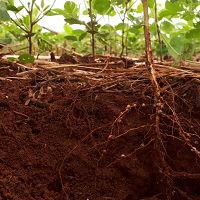
NSF Blog: No soils, no life
27 Oct 2020 (National, Boulder, Calhoun, Catalina-Jemez, Eel, IML, Luquillo, Reynolds, Shale Hills, Sierra) - They’re beneath our feet, but we seldom hear important signals in the soils

AGU 2020: Sessions related to CZ Science
06 Oct 2020 (National, Boulder, Calhoun, Catalina-Jemez, Eel, IML, Luquillo, Reynolds, Shale Hills, Sierra) - A list of sessions related to CZ Science at the upcoming virtual AGU 2020 Fall Meeting.

October 2020 Issue of Eos features Critical Zone Science
28 Sep 2020 (National, Boulder, Calhoun, Catalina-Jemez, Eel, IML, Luquillo, Reynolds, Shale Hills, Sierra) - In the October 2020 Issue, Eos focuses on the Critical Zone at a pivotal point as the discipline comes of age.
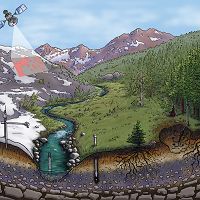
2020 CZO Webinar Series on Sustainability
17 Jun 2020 (National, Boulder, Calhoun, Catalina-Jemez, Eel, IML, Luquillo, Reynolds, Shale Hills, Sierra) - For an updated listing of these talks, including abstracts, see /national/education-outreach/sustainability-2020/ The U.S....
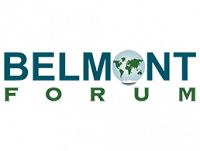
Belmont Forum Announces Collaborative Research Call on Soils
20 Apr 2020 (National, Boulder, Calhoun, Catalina-Jemez, Eel, IML, Luquillo, Reynolds, Shale Hills, Sierra) - The Belmont Forum is pleased to announce the launch of a collaborative research call on the theme: Towards Sustainability of Soils and Groundwater...

CZOs at AGU 2019
19 Nov 2019 (National, Boulder, Calhoun, Catalina-Jemez, Eel, IML, Luquillo, Reynolds, Shale Hills, Sierra) - A list of CZ-related sessions, abstracts and events at the 2019 AGU Fall Meeting.

CZ colleagues: Please contact us about proposals for NSF’s CZ Collaborative Network, due 02 Dec 2019
08 Jul 2019 (National, Boulder, Calhoun, Catalina-Jemez, Christina, Eel, IML, Luquillo, Reynolds, Shale Hills, Sierra) - CZO will end Nov 2020, succeeded by the “CZ Collaborative Network”. Let’s explore how the CZ community can build upon the CZOs via new NSF proposals.

NSF solicitation: Dynamics of Integrated Socio-Environmental Systems (CNH2)
20 Nov 2018 (National, Boulder, Calhoun, Catalina-Jemez, Eel, IML, Luquillo, Reynolds, Shale Hills, Sierra) - NSF Crosscutting CNH2: Dynamics of Integrated Socio-Environmental Systems (CNH2) Solicitation 19-528 DUE DATES Letter of Intent Deadline...
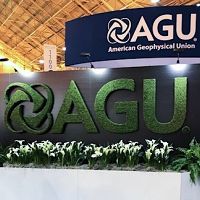
CZOs at AGU 2018
19 Nov 2018 (National, Boulder, Calhoun, Catalina-Jemez, Eel, IML, Luquillo, Reynolds, Shale Hills, Sierra) - The 2018 AGU Fall Meeting will be held December 10-14 in Washington, D.C.

NSF Discovery articles focus on the CZOs.
10 May 2018 (National, Boulder, Calhoun, Catalina-Jemez, Christina, Eel, IML, Luquillo, Reynolds, Shale Hills, Sierra) - The Discoveries section of the National Science Foundation's website on Critical Zone Observatories (CZOs).
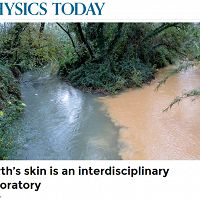
Earth’s skin is an interdisciplinary laboratory
29 Jan 2018 (National, Boulder, Calhoun, Catalina-Jemez, Eel, IML, Luquillo, Reynolds, Shale Hills, Sierra) - In the January 2018 issue of Physics Today, writer Toni Feder explores the scope of CZ research in the article, “Earth’s skin is an...
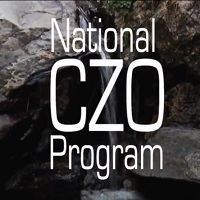
White paper of 2017 CZ Science Meeting in Arlington, VA
01 Jan 2018 (National, Boulder, Calhoun, Catalina-Jemez, Christina, Eel, IML, Luquillo, Reynolds, Shale Hills, Sierra) - New Opportunities for Critical Zone Science Following the June 2017 Arlington Meeting for Critical Zone Science (hosted by CZO), a white booklet...

Undergraduate course curriculum, “Introduction to Critical Zone Science,” available free online
01 Jan 2018 (National, Boulder, Calhoun, Catalina-Jemez, Christina, Eel, IML, Luquillo, Reynolds, Shale Hills, Sierra) - A 15-week semester-long upper-level undergraduate course curriculum entitled “Introduction to Critical Zone Science” is now available free online.
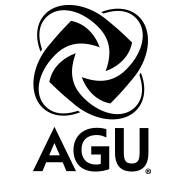
CZOs at AGU 2017
05 Dec 2017 (National, Boulder, Calhoun, Catalina-Jemez, Christina, Eel, IML, Luquillo, Reynolds, Shale Hills, Sierra) - Information on CZO award recipients, events, presentations, etc. at the 2017 AGU Fall Meeting.
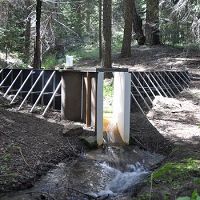
Water Resources Research Special Collection: Concentration-discharge relations in the critical zone
30 Oct 2017 (National, Boulder, Calhoun, Catalina-Jemez, Christina, Eel, IML, Luquillo, Reynolds, Shale Hills, Sierra) - Water Resources Research published a new special collection in September 2017 featuring concentration-discharge research from multiple CZOs.
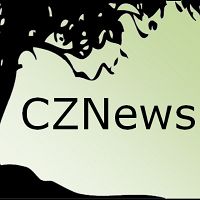
CZNews: Fall 2017
25 Oct 2017 (National, Boulder, Calhoun, Catalina-Jemez, Christina, Eel, IML, Luquillo, Reynolds, Shale Hills, Sierra) - The CZO National Office's quarterly newsletter CZNews: Fall 2017.
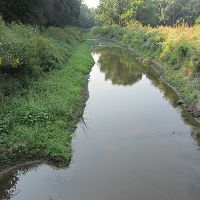
NSF News Release: Changes in non-extreme precipitation may have not-so-subtle consequences
18 Sep 2017 (National, IML) - Analysis of more than five decades of data leads to new conclusions

CZNews: Summer 2017
27 Jul 2017 (National, Boulder, Calhoun, Catalina-Jemez, Christina, Eel, IML, Luquillo, Reynolds, Shale Hills, Sierra) - CZO National Office's quarterly newsletter CZNews: Summer 2017.
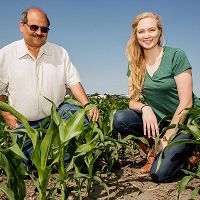
NSF Discovery: Corn better used as food than biofuel, study finds
21 Jun 2017 (National, IML) - Scientists obtain comprehensive view of agricultural ecosystems
_200_200_80auto_s_c1.jpg)
Contribute a classroom/field activity to NAGT’s Teach the Earth
22 May 2017 (National, Boulder, Calhoun, Catalina-Jemez, Christina, Eel, IML, Luquillo, Reynolds, Shale Hills, Sierra) - Contribute a classroom or field activity to Teach the Earth.

2017 CZO Webinar Series: Critical Zone and Society
06 Apr 2017 (National, Boulder, Calhoun, Catalina-Jemez, Christina, Eel, IML, Luquillo, Reynolds, Shale Hills, Sierra) - 2017 CZO Webinar Series: Critical Zone and Society.

K-12 Soil Science Teacher Resources
24 Mar 2017 (National, Boulder, Calhoun, Catalina-Jemez, Christina, Eel, IML, Luquillo, Reynolds, Shale Hills, Sierra) - The Soil Science Society of America (SSSA) is a professional scientific society, made up of soil scientists, educators, and consultants focused on...

CZOs at AGU 2016
22 Nov 2016 (National, Boulder, Calhoun, Catalina-Jemez, Christina, Eel, IML, Luquillo, Reynolds, Shale Hills, Sierra) - CZOs at AGU 2016: Agenda and award recipients
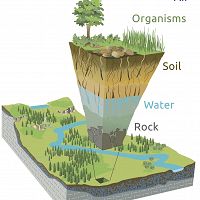
U.S.-China EcoPartnership for Environmental Sustainability Conference Summary
01 Feb 2016 (National, IML) - Summary of a conference and workshop dedicated to Critical Zone Science, Sustainability, and Services in a Changing World hosted by Purdue University.
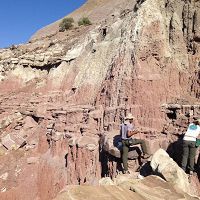
EOS: Taking the Pulse of the Earth’s Surface Systems
04 Dec 2015 (National, Boulder, Calhoun, Catalina-Jemez, Christina, Eel, IML, Luquillo, Reynolds, Shale Hills, Sierra) - Taking the Pulse of the Earth's Surface Systems In September of 2014, Laurel Larsen (UC Berkley), Elizabeth Hajek (Penn State), and others...
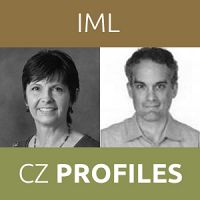
Critical Zone Profiles - Meet the people doing CZO science (IML CZO)
28 Nov 2015 (National, IML) - Get a sense of the people and the work. Several members of the Intensively Managed Landscapes (IML) CZO are profiled here.

Critical Zone Profile - ANDREW STUMPF (Quaternary geologist, senior investigator)
28 Nov 2015 (National, IML) - Associate Quaternary Geologist, Illinois State Geological Survey; Prairie Research Institute, University of Illinois, Urbana-Champaign
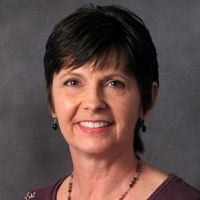
Critical Zone Profile - LAURA KEEFER (fluvial geomorphologist, senior investigator)
28 Nov 2015 (National, IML) - Head of Surface Water Hydrology & Hydraulics, Illinois State Water Survey, Prairie Research Institute, University of Illinois at Urbana-Champaign
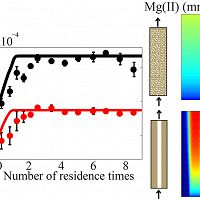
Reactive Transport Modeling Survey – Community Needs for Biogeochemical Studies
08 Apr 2014 (National, Boulder, Calhoun, Catalina-Jemez, Christina, Eel, IML, Luquillo, Reynolds, Shale Hills, Sierra) - Reactive Transport Modeling Survey – Community Needs for Biogeochemical Studies The below survey is designed by Alexis Navarre-Sitchler, Kate...
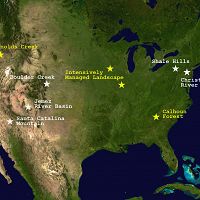
“What’s so critical about the Critical Zone?” webinar
02 Apr 2014 (National, Boulder, Calhoun, Catalina-Jemez, Christina, Eel, IML, Luquillo, Reynolds, Shale Hills, Sierra) - March 31, 2014. Dr. Enriqueta Barrera (NSF CZO program director) and Dr. Gordon Grant (USFS; CZO Steering Committee chairperson)
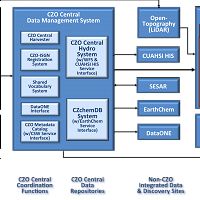
2014 CZOData Cyber-Seminar Spring Series
06 Mar 2014 (National, Boulder, Calhoun, Catalina-Jemez, Christina, Eel, IML, Luquillo, Reynolds, Shale Hills, Sierra) - Presentations describing the Integrated CZO Data system and how to use it; for interested CZO investigators, students & staff.
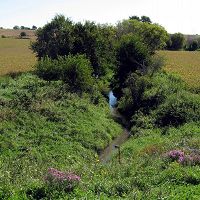
Introducing Intensively Managed Landscapes (IML) CZO
03 Mar 2014 (National, IML) - The IML-CZO focuses on intensely managed agricultural and urban landscapes in Iowa, Illinois, and Minnesota.
-
Cross-CZO Events
“What’s so critical about the Critical Zone?” webinar
Speakers: Dr. Enriqueta Barrera (NSF) and Dr. Gordon Grant (USFS)
Internet .December 8 CZO webinar
Using a CZO network to explore the architecture, dynamics and evolution of the Critical Zone
Online.1:1 Data Consultation: IML CZO and CZOData team
IML CZO and the CZOData team will discuss sharing data.
Online: 3-5 EDT / 2-4 CDT / 1-3 MDT / 12-2 PDT.IML-CZO Offers Short Course on Organic Matter
IML-CZO Offers Short Course on Organic Matter
Purdue University.CZ Science, Sustainability, and Services in a Changing World
Critical Zone Science, Sustainability, and Services in a Changing World Workshop
Purdue University.AGU 2015: A Town Hall for the Network of CZOs
AGU 2015: A Town Hall for the Network of Critical Zone Observatories (TH25D)
San Francisco, CA - Moscone Center, Moscone West - 2010.NSF Review of CZO Network
Review of CZO network by NSF will occur in Fall 2016
National Science Foundation, Arlington, VA.2016 AGU Fall Meeting
American Geophysical Union Annual Meeting in San Francisco, CA
Moscone Center, San Francisco, California .CZO Town Hall at AGU 2016
Town Hall: Critical Zone Observatories: Platforms for Collaborative Science
AGU Meeting, San Francisco, CA.CZO Webinar: Critical Zone Services
Critical Zone Services webinar presented by David Breshears and Jason Field
Online.Webinar: Blue Revolution: Water scarcity in a changing world
Blue Revolution: Water scarcity in a changing world webinar presented by Praveen Kumar.
Online.CZO Webinar: Drought resilience and water security
Drought resilience and water security presented by Roger Bales
Online.CZO Webinar: Forecasting of Earth surface processes
Forecasting of Earth surface processes webinar presented by Jon Pelletier.
Online.CZO Webinar: Policy Relevance of Critical Zone Science
Policy Relevance of Critical Zone Science webinar presented by Steve Banwart
Online.2017 Arlington Meeting for Critical Zone Science
"Critical Zone Science: Current Advances and Future Opportunities”. Arlington, VA (near NSF).
DEADLINE: 01 APRIL 2017 for registration & optional abstract.
Hilton Hotel, Arlington, Virginia.Team meeting with Praveen Kumar, Director of IMLCZO
117 EES Building.Praveen Kumar presents Harleman Lecture
Advancing Food-Energy-Water Sustainability through Critical Zone Science
110 Wartik Lab .CZO Town Hall at AGU 2017
Town Hall: Critical Zone Observatories: Platforms for Collaborative Science
New Orleans Ernest N. Morial Convention Center.CZO / LTER / NEON / ISMC Joint Workshop
Modeling the Critical Zone; State of the Art, Data Integration, and Frontiers
Boulder, Colorado.2018 Clay Minerals Society Annual Meeting
The 55th Annual Meeting of the Clay Minerals Society: New Visions in Clay Science
University of Illinois at Urbana-Champaign.CUAHSI Training Workshop
The Role of Runoff and Erosion on Soil Carbon Stocks: From Soilscapes to Landscapes
Knoxville, TN. -
Cross-CZO Models
Explore Further
